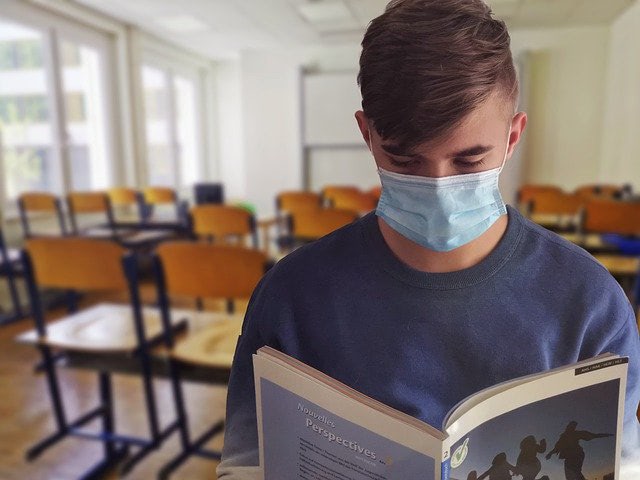EDUCATION RECOVERY: MAJORITY OF SCHOOLS SIGN UP TO SUMMER SCHOOLS

An overwhelming majority of eligible secondary schools in England have signed up to host a summer school over the holidays, offering a mixture of academic and extra-curricular activities to boost catch up for children.
New figures show 2820 secondary schools have signed up to participate, which is equivalent to three quarters (74%)of those eligible, and the scheme has been backed by over £200 million investment from the Department for Education.
More than 500,000 students are expected to benefit from high quality, face-to-face learning over the summer holiday period, helping pupils catch up on pivotal education lost through the pandemic.
The summer school programme is helping schools deliver a range of academic and enrichment activities, providing pupils not only with vital maths and English lessons, but also skills to build confidence, friendships and improve wellbeing.
The summer schools programme is part of the Government’s ambitious, and long-term education recovery plan which includes an investment to date of over £3bn and a significant expansion of our tutoring programme, to support children and young people to make up for learning lost during the pandemic.
Sector Reaction
 Schools Minister, Nick Gibb, said:
Schools Minister, Nick Gibb, said:
“It’s very good to see so many children will now have the opportunity to enjoy clubs and activities this summer, building friendships and supporting their mental and physical health, alongside their educational progress.”
“We have invested £3 billion so far in helping children catch up ahead of the next academic year and summer schools are an integral part of the overall effort to recover from the disruption caused by the pandemic.”
Schools have the freedom to target their summer school programme at children most in need of catch up. This includes targeting children with special needs, those from disadvantaged backgrounds and those entitled to free school meals. Special schools and alternative provision schools have been funded at a higher rate to reflect the needs of children.
Wellbeing activities planned by schools include theatre trips, sports sessions, team games, sit down sessions with authors, cooking and more.
Incoming Year 7 students will predominantly be encouraged to get involved, to help them navigate the important transition between primary and secondary school.
 Paul Whiteman, general secretary of school leaders’ union NAHT, said:
Paul Whiteman, general secretary of school leaders’ union NAHT, said:
“Today’s data shows that a significant number of secondary schools have decided to run a summer school. However, it is important to remember that summer schools are only one part of the important recovery work schools are doing and they won’t be right for everybody. Leaders will have taken into account the unique needs and characteristics of their communities when making decisions around summer schools. We shouldn’t lose sight of the range of other important initiatives schools will be running to support pupils.
“Everyone in education understands that ‘recovery’ is a long-term project requiring concerted effort and investment. Schools stand ready to undertake this work. In order for it to be effective, the government needs to raise its game when it comes to funding, and provide a much fuller programme of investment over the coming years than we’ve seen so far.”
 Commenting on the summer school figures, Natalie Perera, Chief Executive of the Education Policy Institute (EPI), said:
Commenting on the summer school figures, Natalie Perera, Chief Executive of the Education Policy Institute (EPI), said:
“The government’s overall education recovery package of £3.1bn fails to match the scale of lost learning and is unlikely to be enough to help children to catch up with their education and support their wellbeing. Our research has shown that a three-year funding package totalling £13.5bn will be required to reverse the damage to pupils’ learning as a result of the pandemic.
“Summer schools are a vital part of the education recovery process, but the government’s programme is limited as it is only targeted at a small subset of pupils. Supporting those pupils transitioning into Year 7 is important, but we need to see summer schools open to pupils in all year groups, including those in primary schools. In order to recover the months of lost learning experienced by pupils, we estimate that the government needs to spend closer to £2bn over the next three years on summer schools – that’s 10 times what they’ve currently committed to.”
 Kate Green MP, Labour’s Shadow Education Secretary, responding to the Government’s press release on the summer schools programme, said:
Kate Green MP, Labour’s Shadow Education Secretary, responding to the Government’s press release on the summer schools programme, said:
“The Conservatives are showing a staggering lack of ambition for our children’s futures.
“More children are leaving school without any catch-up support than will attend a summer school this year, providing yet more evidence of the Conservatives’ failure to deliver on their promises on children’s recovery.
“Labour has set out a bold plan to invest in our children’s futures to compensate for the Conservatives’ failures over the last year, and ensure all children can play, learn and develop post-pandemic. It’s time for the Conservatives to get behind Labour’s plan and match our ambition for children’s futures.”











Responses